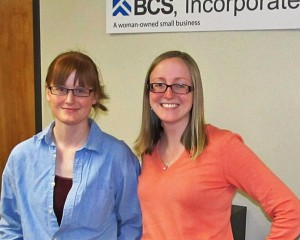Davis aims to bring statistical approach to city planning
Liz Davis is a numbers person (math major, physics minor); a musical person (choir, clarinet, steel drum); and a people person (admission tour guide, radio station promotions director). But more than anything she is an idea person who has discovered a passion for urban planning, thanks to key politics courses (her second major) and a Cornell Fellowship with an energy policy firm.

“There are a lot of question to be asked about urban policy and how land use affects how people live,” she said. “City planning is super cool because it’s social engineering in the best sense of the word—like architecture on a large scale.”
More specifically, Davis’s focus is on data, and her eyes light up when she ponders the massive reports churned out by the government each year.
“The Department of Labor produces really interesting data on how Americans live,” she said. “There are transportations studies on things like how long people’s commutes are. And there is even a Bureau of Prisons that generates really fascinating data.”
During her work at BCS she gained meaningful exposure to this type of data as it related to geothermal potential in Indonesia, outcomes of various energy efficiency incentive programs in the U.S., and other energy-related policy applications. But she also yearned to go deeper into the data to develop her own conclusions and be closer to the policy creation part of the process, and she realized that three undergraduate statistics courses were not enough.
This realization added to impressions she gained during a previous research internship at Rutgers University, where she applied mathematical modeling to the spread of the West Nile virus. “I learned that I’d like to not be one of the background researchers but one of the people implementing things,” she said.
So her next step is a master’s program in applied statistics at the Ohio State University, then likely finding policy-related employment before aiming for a doctorate in public policy. During her master’s studies, she hopes to take additional courses in fields like psychology or economics to learn more about ways in which statistics can be applied to real-world problems.
She credits Craig Allin’s Urban Policy course for opening her eyes to the many options in the field, and she also completed an independent study on high-speed rail with guidance from David Yamanishi who suggested more career options related to data mapping.
“I’m hoping to learn GIS (Graphical Information Systems) and apply it to cities. For example, you might develop a connectivity index to figure out how to get people to transit locations most efficiently or how to build better transit routes,” Davis said.
Davis also appreciates lessons learned in her math classes, both for their rigor and for the type of community they fostered.
“I like the really hard classes where we’re all suffering together and band together. I think that’s something unique to schools like Cornell that have small classes, and the block plan helps because we really form tight bonds in each class,” she said.
“We’re also used to not putting things off. That’s the feeling I got at BCS—they gave me things they thought would take all day to do and I was much more efficient.”



